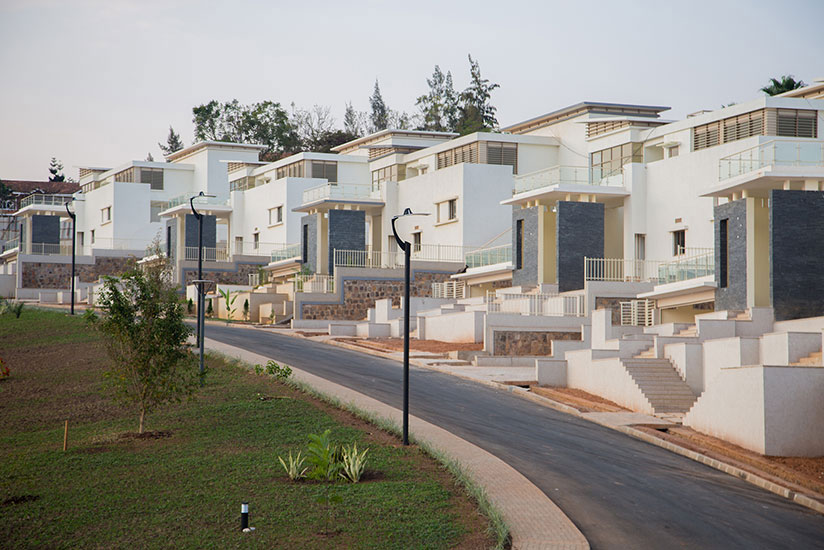The document “Affordable Housing in Kigali: Issues and Recommendations” addresses the critical housing challenges facing Kigali, Rwanda, emphasizing the urgent need for affordable housing solutions. Rapid urbanization and population growth have led to a significant housing deficit, with many residents living in informal settlements. The report outlines several key issues contributing to this crisis:
The issue of affordable housing in Kigali, Rwanda, has become increasingly pressing as the city experiences rapid population growth and urbanization. With an expected doubling of its population over the next 25 years, the demand for affordable housing is soaring, yet the supply remains inadequate. This summary explores the key issues surrounding affordable housing in Kigali and offers recommendations to address these challenges.
 Current Housing Landscape
Current Housing Landscape
Kigali’s housing market is characterized by a significant shortfall in affordable units. Recent studies indicate that approximately 700,000 new dwelling units will be needed by 2028, with about 70% falling into the affordable housing category. Currently, around 79% of Kigali residents live in informal settlements, often lacking access to basic public services such as clean water and sanitation. The city’s topographical constraints further complicate the situation; much of the land is unsuitable for development due to steep slopes or wetland areas, limiting available space for new housing projects.
Further reading:
[PDF] Affordable Housing in Rwanda: Opportunities, Options, and … theigc
Social And Affordable Housing Development rha.gov
Economic Challenges
Despite Rwanda’s impressive economic growth—averaging 7% annually since 2009—many residents struggle with low income levels. A large portion of the population relies on subsistence farming, which is becoming less viable as land sizes shrink. This economic reality makes it difficult for many families to afford even the most basic housing options. The government aims to increase urbanization from 18% to 35% by 2024, which translates to a need for substantial investment in housing infrastructure.
Policy and Regulatory Framework
The Rwandan government has initiated several programs aimed at addressing the affordable housing crisis. The Affordable Housing program seeks to provide solutions for low- and middle-income communities by collaborating with financial institutions to facilitate home ownership. However, there are significant barriers to success, including high construction costs driven by limited land supply and restrictive planning regulations that hinder efficient building practices.
Recommendations
- Streamline Regulatory Frameworks: To encourage more efficient use of land and resources, Kigali should consider revising its planning regulations. Reducing bureaucratic hurdles can facilitate faster approvals for new developments, allowing for a more responsive housing supply that meets rising demand.
- Utilize Local Materials: Encouraging the use of locally sourced building materials can lower construction costs significantly. Innovations in low-cost and efficient building technologies should be promoted to enhance affordability without compromising quality.
- Public-Private Partnerships: The government should foster partnerships with private developers to leverage their expertise and resources in delivering affordable housing projects. Incentives such as tax breaks or subsidies could stimulate investment in this sector.
- Community Engagement: Involving local communities in the planning process can ensure that new developments meet their needs and preferences. This participatory approach can lead to more sustainable and culturally appropriate housing solutions.
- Focus on Infrastructure Development: Adequate infrastructure is essential for supporting new housing projects. Investments in roads, water supply, and sanitation facilities should be prioritized alongside housing development to create livable communities.
- Innovative Financing Solutions: Exploring alternative financing mechanisms, such as microfinance or cooperative models, can help lower-income families access funds for home construction or improvement.
- Promote Vertical Housing Solutions: Given the limited land availability, promoting multi-story residential buildings can maximize space efficiency while providing more units within a smaller footprint.
Conclusion
The challenge of affordable housing in Kigali requires urgent attention from policymakers, developers, and community stakeholders alike. By addressing regulatory barriers, promoting local materials and innovative financing solutions, and engaging communities in the planning process, Kigali can work towards creating a more sustainable and inclusive urban environment. As the city continues to grow, these strategies will be crucial in ensuring that all residents have access to safe and affordable housing options that meet their needs and contribute to their overall well-being.
